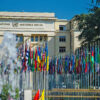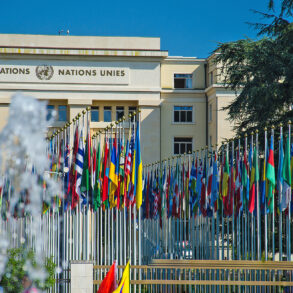The writings of Franz Kafka still fascinate us today – why?
Islamic Times – The term Kafkaesque is associated with the work of writer Franz Kafka and is often used to describe a surreal, oppressive or absurd situation characterised by an inexplicable complexity, an impenetrable bureaucracy or a seemingly pointless existence.
His works, such as The Metamorphosis, The Trial or The Castle are part of world literature and are famous for their enigmatic depictions of exceptional human situations. The “flawless prose,” as Rüdiger Safranski writes in his new biography, reflects the abysses of the 20th century and thus “metaphysics at the moment of its disappearance.”
Frank Kafka or the endless process
“Someone must have slandered Josef K., because without him having done anything wrong, he was arrested one morning.” This sentence begins The Trial, a novel that was published posthumously by Kafka and is one of his best-known works. It is a complex story about a man who is arrested and put on trial for no apparent reason.
During the plot, he is confronted with an impenetrable system of legal proceedings and bureaucracy. An official initially tells him succinctly: “Our authorities, as far as I know them, and I only know the lowest grades, are not looking for guilt in the population, but are, as the law says, attracted by guilt and have to send out guards.”
The labyrinth into which the protagonist enters has little to do with the rule of law. The nameless judges and public prosecutors hide in attics, negotiate in back rooms and sensible legal advice is just as hard to come by. The story thus creates an atmosphere that is somewhere between nightmare and real-life satire and raises existential questions about guilt, the law and order.
Why Franz Kafka continues to fascinate us today is due to the numerous points of contact with modern themes: the nature of authority, the powerlessness of the individual, the search for meaning and identity and the futility of human endeavours to gain control over their own destiny.

Fot: Mondadori Portfolio | Wikimedia Commons | Lizenz: Public Domain
Kafka engages philosophers, psychoanalysts and theologians
Such aspects of the relationship between citizens and authorities remind us today of the debates in the context of the pandemic, the discussions about civil rights or the everyday fates of refugees without rights. Beyond these political and legal perspectives, Kafka has occupied philosophers, psychoanalysts and theologians.
Part of the author’s genius is that he eludes any definitive interpretation. Kafka is an enigma that needs to be deciphered again and again.
Did the writer, who wrote The Trial between 1914-15, foresee the emergence of totalitarian states? Commentators are still pondering this question today. The uncanny atmosphere of the novel, which describes the lack of rights and the individual’s being at the mercy of a system, speaks in favour of this.
Josef K.’s submissions in his defence are not read by the court. “They are simply filed away and it is pointed out that, for the time being, the interrogation and observation of the accused is more important than anything written.” Who is not thinking here of unjust states and trials that today affect regime critics from the most diverse camps?
In France, the intellectual Geoffroy de Lagasnerie calls for the interpretation of Kafka as an early admonisher of the rule of law to be met with suspicion. “By frightening us with the description of a world in which the law is invisible and indeterminate, it awakens in us the desire to live in a regime in which the law is written, fixed and public – in other words, to live in the world in which we already live.”
De Lagasnerie fears that we are thus deceiving ourselves about the crises of law that are part of modernity and our democracies. We are not already good democrats because the others are not. And: quite a few Muslims, at the interface between law and politics or life and revelation, are afraid of the Kafkaesque situation of constantly coming under suspicion because of their way of life in democracy.
Before the law
In his book Homo Sacer, which describes “naked life” in the modern age from a political-theological perspective, Giorgio Agamben devotes several pages to Kafka’s work. The philosopher is particularly interested in the legend “before the law,” which a clergyman tells the accused at the end of the novel. In the parable, a doorkeeper seemingly prevents the man from the country from entering through the open door of the law. He remains spellbound in front of the door for years until, shortly before his death, he is told that it was only open to him and that it will now be closed.
For Agamben, the legend reveals the pure form of the law, which is at its strongest precisely at the point where it no longer prescribes anything, i.e. when it is pure banishment. This is where the paradoxical effect of “validity without meaning” becomes apparent. It is debatable at this point whether, in this typically Kafkaesque situation, life and the law simply become indistinguishable in a state of emergency or whether the old law dissolves into a modern nihilism.

Foto: anonym | Wikimedia Commons | Lizenz: Public Domain
“The Trial” as a warning
From a theological point of view, the parable can be read as a warning to always seek the meaning of law and not just to practise or accept a cold religion of law. In Islam, this maxim arises from the triad of Islam, Iman and Ihsan.
The countless political interpretations that are in circulation are also criticised. The criticism is that these interpretations are too far removed from the author’s work. And it is true: Josef K.’s situation does not arise solely from an external political compulsion or from the factuality of a dictatorship. This becomes clear in the following words of the priest – addressed to the accused: “The court wants nothing from you. It takes you in when you come, and it releases you when you leave.”
It is an inner state, a feeling of guilt, that triggers the trial. Biographically, the author processes deep feelings of guilt in the text, which resulted from a failed relationship with his fiancée Felice. The relationship (“I can’t live with her and I can’t live without her”) ends – from the point of view of the desperate man – in a court case with the relatives of his lover.
In his dissertation Description of a Form, the writer Martin Walser devotes himself to a text-immanent interpretation. He points out that Kafka not only lacks a narrator, but also a point in time from which the story is told. “Since the trial itself takes place outside of any known past, these novels gain a presence that is otherwise alien to epic poetry.”
For him, Kafka’s work takes place outside of any known historical past or present. In this sense, it is not a novel that describes or foresees a political development, but a depiction of a totality that is timeless. Kafka’s characters do not experience any progress in their character, they endlessly go round in circles in their loneliness.
Fear vs. anxiety
An important aspect of understanding this literature is the philosophical distinction between fear and anxiety. It is not a concrete fear that defines Kafka’s characters, rather Kafka describes the fear that is triggered by the realisation of their own existence. In his work Being and Time, published in 1927, Martin Heidegger defines this threatening mood as follows: “The threatening cannot (…) approach from a certain direction (…), it is already there – and yet nowhere, it is so close that it constricts and takes one’s breath away – and yet nowhere.”
The philosopher summarises the existential situation of man: “If the what of fear turns out to be nothingness, i.e. the world as such, then this means that what fear is afraid of is being in the world itself.” The feeling of uncanniness in a modern world that tries to get by without metaphysics and ultimate truths is what preoccupies the philosopher and the writer here.
Why does Franz Kafka’s work still fascinate so many readers today? There is no doubt that Kafka helps us to better understand the problems of modern systems, the danger of impending lawlessness or the fear that emanates from the possibility of totalitarian bureaucracies. We know, especially when we study Kafka, that the complexity of modernity defies simple explanatory models.
We must not overlook the fact that the writer does not offer any definitive interpretations and that a final interpretation of his stories is therefore never possible. It is precisely this doubtful uncertainty that he wants to impose on his readers. In this sense, the philosophical and theological impulses emanating from Kafka’s works are decisive. This is about something fundamental and personal.
The atmosphere of distress that afflicts man when he neither believes in a metaphysical law nor can overcome his fear of the abysses of his existence is well known to modern man. Throughout his life, Kafka was preoccupied with his Jewish roots and – albeit in vain – with the possibility of finding religious meaning. For him, this search for solace was his purpose in life, which he ultimately found in writing: “I have no literary interest, I consist of literature, I am nothing else and can be nothing else.”











